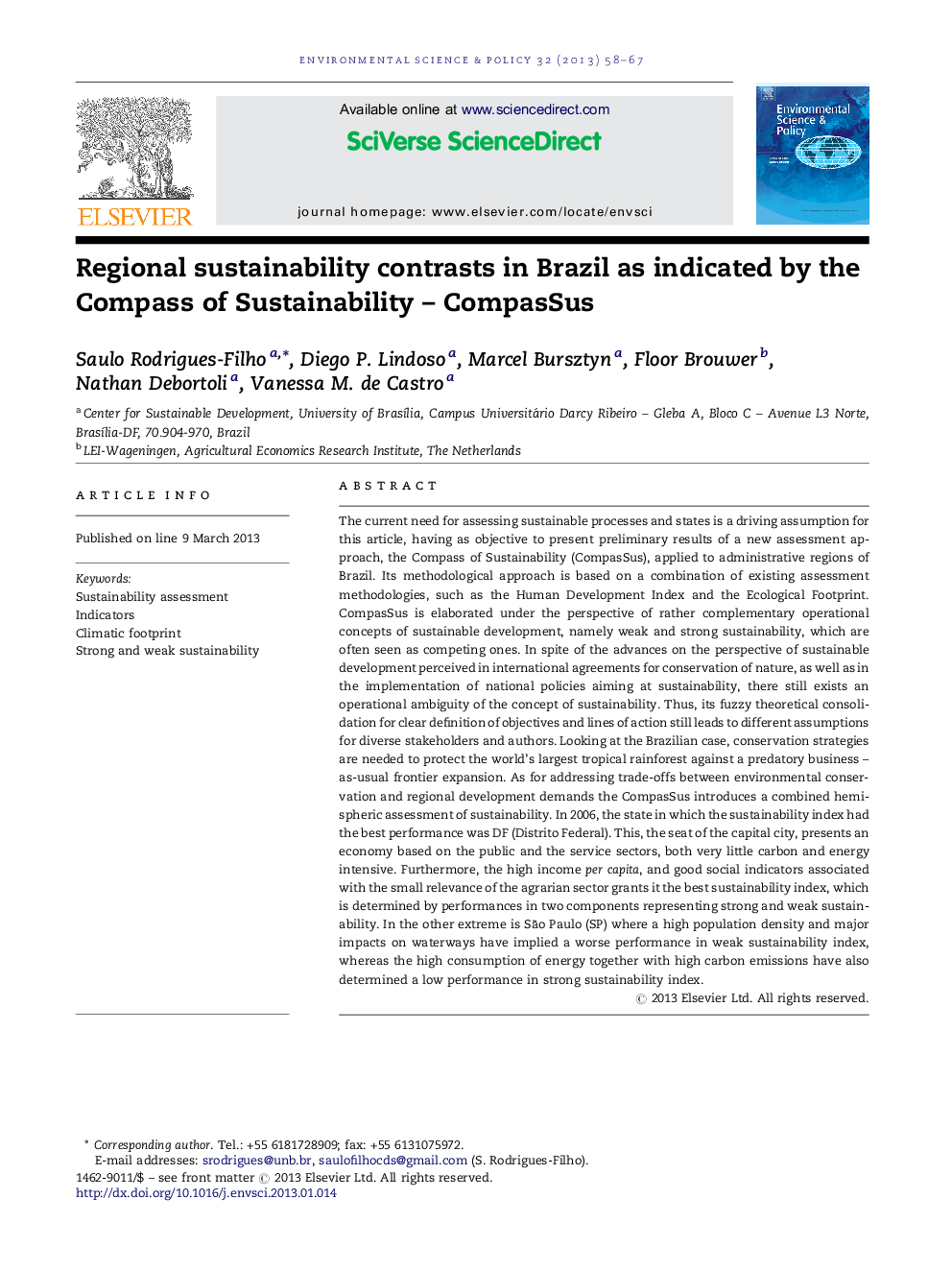| کد مقاله | کد نشریه | سال انتشار | مقاله انگلیسی | نسخه تمام متن |
|---|---|---|---|---|
| 1053614 | 1485074 | 2013 | 10 صفحه PDF | دانلود رایگان |

The current need for assessing sustainable processes and states is a driving assumption for this article, having as objective to present preliminary results of a new assessment approach, the Compass of Sustainability (CompasSus), applied to administrative regions of Brazil. Its methodological approach is based on a combination of existing assessment methodologies, such as the Human Development Index and the Ecological Footprint. CompasSus is elaborated under the perspective of rather complementary operational concepts of sustainable development, namely weak and strong sustainability, which are often seen as competing ones. In spite of the advances on the perspective of sustainable development perceived in international agreements for conservation of nature, as well as in the implementation of national policies aiming at sustainability, there still exists an operational ambiguity of the concept of sustainability. Thus, its fuzzy theoretical consolidation for clear definition of objectives and lines of action still leads to different assumptions for diverse stakeholders and authors. Looking at the Brazilian case, conservation strategies are needed to protect the world's largest tropical rainforest against a predatory business – as-usual frontier expansion. As for addressing trade-offs between environmental conservation and regional development demands the CompasSus introduces a combined hemispheric assessment of sustainability. In 2006, the state in which the sustainability index had the best performance was DF (Distrito Federal). This, the seat of the capital city, presents an economy based on the public and the service sectors, both very little carbon and energy intensive. Furthermore, the high income per capita, and good social indicators associated with the small relevance of the agrarian sector grants it the best sustainability index, which is determined by performances in two components representing strong and weak sustainability. In the other extreme is São Paulo (SP) where a high population density and major impacts on waterways have implied a worse performance in weak sustainability index, whereas the high consumption of energy together with high carbon emissions have also determined a low performance in strong sustainability index.
► We present a new method applied to a regional assessment of sustainability in Brazil.
► Our method considers both local and global perspectives as complementary.
► Agenda of sustainable development requires to cope with its conceptual ambiguity.
► Trade-offs between environment and development are addressed.
Journal: Environmental Science & Policy - Volume 32, October 2013, Pages 58–67